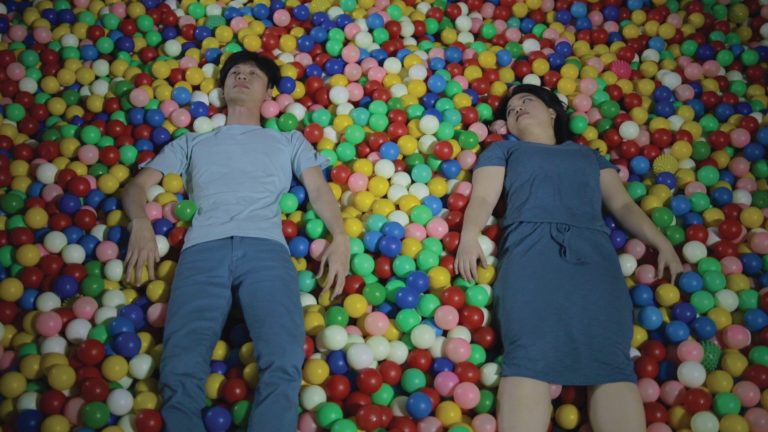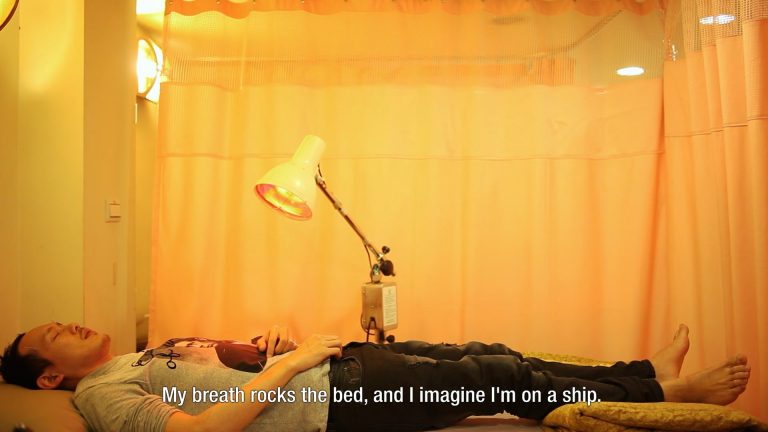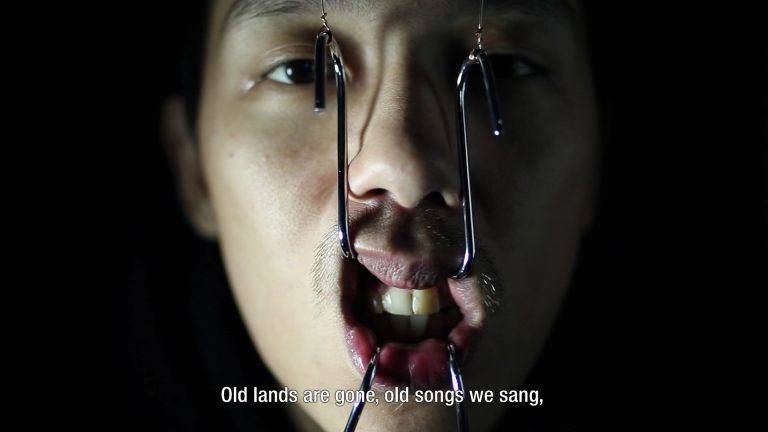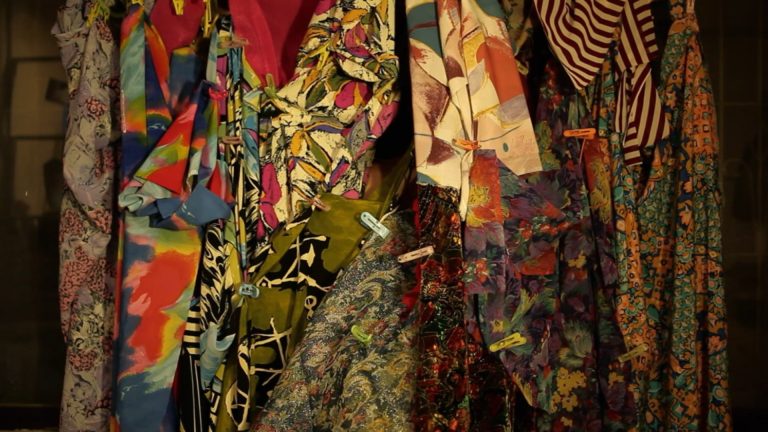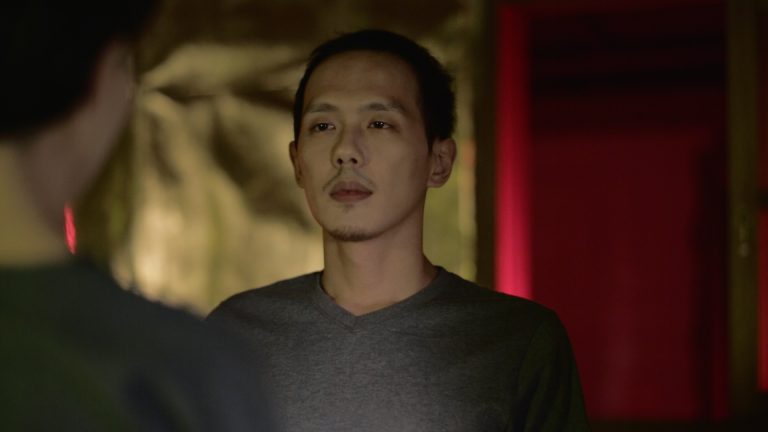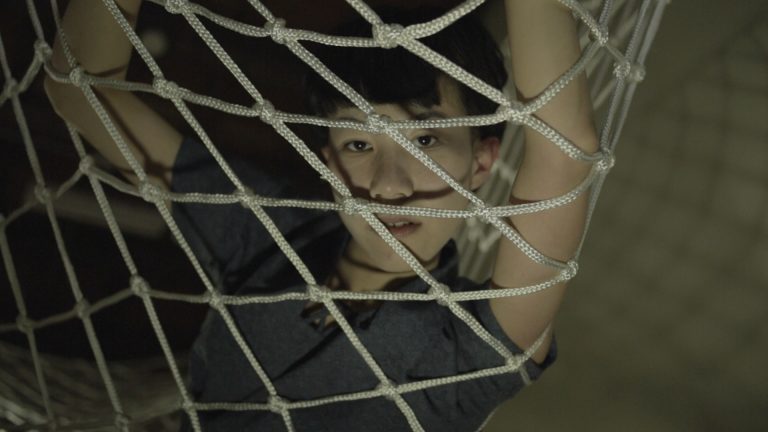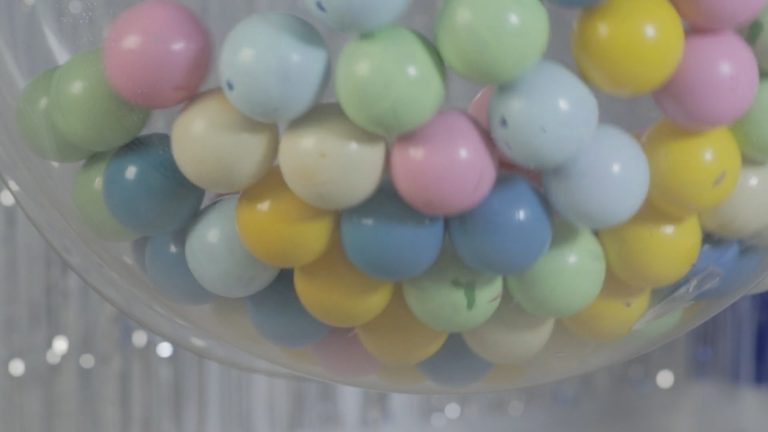IMMA Screen
IMMA Screen is an online screening series showcasing film and video works from the IMMA Collection. New screenings will be available monthly, presenting works by Irish and international artists alongside a new interview and related material from the IMMA Archive.
IMMA Screen is an online screening series showcasing film and videos from the IMMA Collection. New screenings will be available monthly, presenting works by Irish and international artists alongside a new interview and related material from the IMMA Archive. Each work will be accessible online for one month.
Artists’ moving image works have featured extensively in IMMA’s programming history since 1991 and form a key part of the Collection. Recently, many of these works have been digitised from analogue formats such as VHS tape and Laserdisc as part of a large-scale Collection & Programme Digitisation Project funded by the Department of Culture, Heritage & the Gaeltacht. This process preserves the works for the future while also allowing greater access to audiences and researchers. IMMA Screen highlights the Museum’s holdings of moving image work as a significant national collection of artists’ film and video.
Kevin Gaffney, Everything Disappears
We are delighted to present Kevin Gaffney’s Everything Disappears (2014) as the third work from the Collection to be showcased as part of IMMA Screen. This is the first presentation of the work by IMMA since it became part of the Collection in 2015.
In addition to the work itself, a live-streamed conversation between Kevin Gaffney and curator, writer and organiser Sara Greavu will take place online on 23 July at 6.30pm. The discussion will focus on Everything Disappears in relation to Gaffney’s wider practice. For details on how to engage with the event, please follow this link. A recording of the conversation will subsequently be made available on this page.
Alongside this, the artist has shared a pdf of the original Mandarin script for the film as well as an insightful essay by Caoimhín Mac Giolla Léith, both of which are available further down this page in the ‘Additional Resources’ section.
About the film:
Everything Disappears was filmed in Taipei with four participants (Revanshu, William Hsu, Lucie Chen & Issac Tsai) who answered an open call to perform in a film exploring self-image, identity and relationships. Gaffney worked closely with the participants: formulating scenes together in a collaborative process and filming each participant in their home. The film unfolds across Taiwanese cityscapes and intimate portraits in seven chapters: (i) Everything Disappears, (ii) I Grip Tightly to the Sand, (iii) An Exercise in Forgetting, (iv) The Elephant on the Roof, (v) They are Known by Many Names, (vi) The Ghost Ship, and (vii) The Closed Eyes of a Stranger.
The central chapter, The Elephant on the Roof, is spoken by a voice actor and tells of a young gay man’s stay in a psychiatric hospital in order to escape military conscription. As an unseen fifth participant, his story describes needing to perform his mental illness in order for it to be observable by doctors, and the deterioration of his grasp on reality that followed.
Portrayals of the four participants unravel across intimate scenes to surreal staged events, mediating an exchange between reality, reconstruction and mythological imagination.
The film has been included in a number of exhibitions nationally and internationally, including: solo exhibition at Millennium Court Arts Centre, Northern Ireland (2016/2017); ‘Other Forms of Relations,’ MMCA Residency Changdong, Seoul, South Korea (2014); Solo exhibition at Block 336, London (2017), curated by Kathleen Soriano and ‘The Numbers Station,’ Ulster University Art Gallery, Belfast School of Art (2015).
Everything Disappears was created on residency at the Taipei Artist Village, and supported by the Arts Council of Ireland’s Film Project Award. Post-production was supported by the Fire Station Artist Studio’s Digital Media Award.
Read an article by Kevin Gaffney in Visual Artists Ireland news-sheet about the making of the film here.
Interview with the artist
Interview with the artist
About the Artist
Additional Information
Additional Information
The first programme for IMMA Screen presents works by six artists over six months. Including Helen Cammock, Phil Collins, Vivienne Dick, Kevin Gaffney, Isabel Nolan and Alanna O’Kelly.
In different ways, these works engage with performance and the role of the camera in the construction and mediation of identity. From Isabel Nolan’s humorous explorations of performed identity in 'Sloganeering 1-4' (2001), to Phil Collins’ confronting insight into the depiction of war victims by journalists in 'How to Make a Refugee' (2000). In thinking about the psychological implications of newly imposed physical distancing between ourselves and others, the programme invites a timely reflection on the power and politics of representation and the continuous fabrications of the self and the other. A number of these works, including 'Sanctuary/Wastelands' (1994) by Alanna O’Kelly, also deal poignantly with ideas of loss and erasure.
